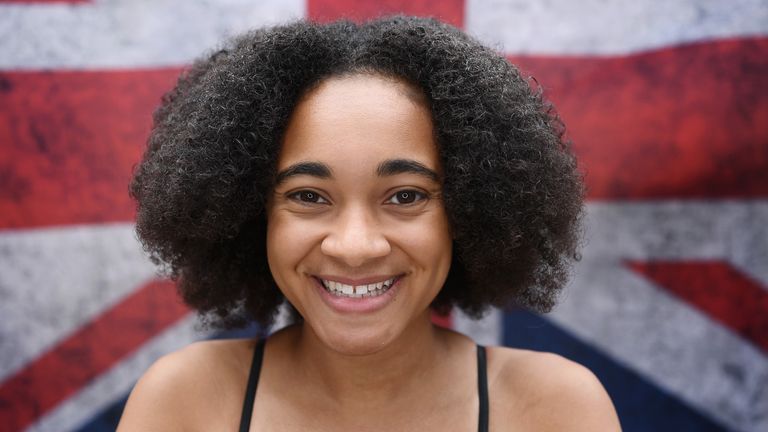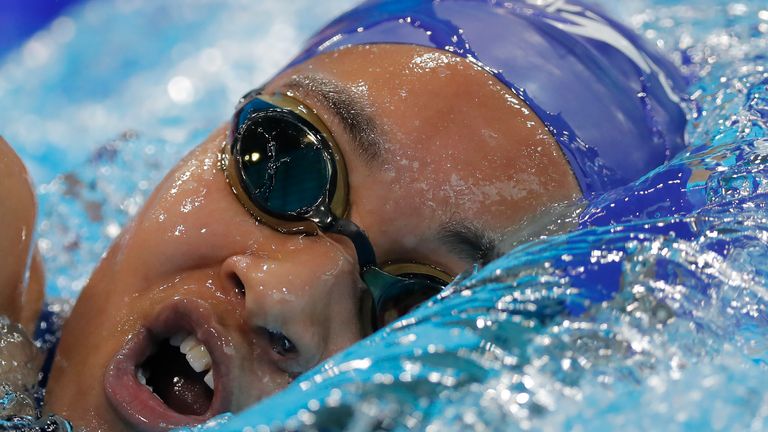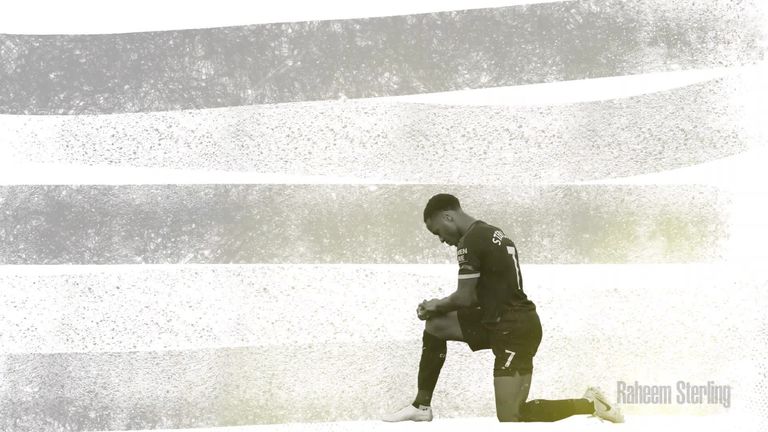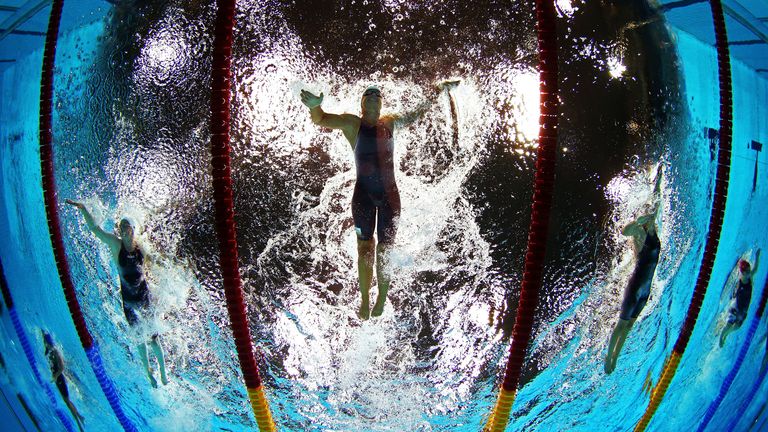Alice Dearing: Britain's only black elite swimmer looking to challenge cultural myths
The Olympic hopeful is on a mission to promote inclusivity and diversity in a swimming world damaged by stereotypes
Monday 24 August 2020 13:24, UK
"I have heard myths such as black people can't swim, our bones are too dense, we sink when we get into the water. It's not meant for us...."
As Great Britain's only black elite swimmer Alice Dearing is on a mission to promote inclusivity and diversity in a swimming world damaged by stereotypes.
- 'Black Lives Matter is a cry for help'
- Will Black Lives Matter movement change sport for good?
- England Hockey has racism problem and must admit it
While 95 per cent of black adults in England do not swim and 80 per cent of black children have never been swimming according to Swim England statistics, Birmingham-born Dearing is seen as an anomaly, learning to swim at the age of five.
"I've had black people tell me they can't swim and I'm like 'you can. I promise you'. You just need lessons - you just need to be taught," Dearing exclusively told Sky Sports News.
"You might have had one bad experience with the water but it shouldn't affect your whole relationship with swimming and relationship with water because it is such an important life skill."
Dearing's love for the water quickly led her to join her local swimming club in Oldbury at the age of eight alongside her older brother with success in the pool quickly following.
By the age of nine, Dearing had won her first competition at an open meet with further success culminating in her winning the world juniors a decade later in 2016.
When recalling her childhood memories of swimming, the 23-year-old freestyler speaks affectionately but admits that while most were encouraging there were times when she faced general ignorance and racism.
"I'm quite fortunate in the sense I haven't had to experience too much of it but that's not the point," Dearing said.
"I had like one major incident where a coach used a racially derogatory word about me to another swimmer, who then told me and it got reported.
"The sad thing was I didn't even know this coach and had never spoken to him in my life.
"It hurt me that someone would judge me in such a way and use language when they have never spoken to me.
"I ended up rationalising as it was their words that they chose. I would never use that word to describe myself, so I think it's a reflection on them as a person."
'There is a change in the water'
The death of George Floyd and the subsequent Black Lives Matter movement has seen a push for change throughout society, something that Dearing feels a sense of empowerment from.
"What the tragic murder of George Floyd has done, it has forced people to have a hard look at how they conduct themselves, how society is conducted.
"I have felt a sense of empowerment. Honestly at first when the whole issue kicked off when Black Lives Matter was prominent again, I was sceptical because we have seen it so many times.
"But I really feel something different, like a change in the water - pardon the pun - but there is something different about this one. People have really opened their eyes to the issues going on and I'm really excited to see what changes can come about."
Dearing is determined to use her own platform to change the perception of swimming for the black community, believing something has been missing in getting more ethnic minorities into the pool.
It has led to Dearing co-founding the Black Swimming Association (BSA) alongside journalist Seren Jones, inventor Danielle Obe and musician and filmmaker Ed Accura earlier this year.
Aiming to bridge the gap between swimming and the Black community by reaching out to schools and swimming clubs to get children and adults in the water, a recent documentary about a black man's traumatic journey learning to swim saw the association inundated with people wanting to tackle aquaphobia and take swimming lessons.
'I just want to be seen as a swimmer'
The achievement fills Dearing with a sense of pride, one that would only be eclipsed by the prospect of being the first black person to represent Great Britain in the pool in Tokyo next year.
"It's something that I'm quite proud of in a sense because I'm really proud to be able to represent my county in the sport that I love, and I get to travel the world.
"But the ultimate aim is that while I am putting myself forward as a black swimmer, I eventually just want to be seen as a swimmer.
"I don't want people to look at someone and go look 'they are a black swimmer'. I just it want it to be 'oh they are a swimmer'.
"I'm well aware this is not a quick fix, it's going to take time to see these changes happen.
"That is the goal but at the same time, we need to talk about it in this way so that the change can happen."
Whether Dearing achieves her dream of representing her country in the Olympics next year remains to be seen, but either way, there is nothing that is going to stop her from making waves in the fight for equality….
'Our vision is a nation swimming'
Swim England has told Sky Sports News the number of people aged 11+ from BAME communities who were regularly swimming was actually on the rise prior to the coronavirus outbreak and subsequent lockdown.
A statement from the organisation read: "The figures showed an increase on those who swim recreationally on a monthly basis from 17.2 per cent in 2016 to 26.6 per cent in 2019.
"Our vision is a nation swimming and [as the recognised national governing body we] are committed to increasing participation among all communities.
"We have agreed two exciting partnerships in the past 12 months with the inclusion charity Sporting Equals and the Black Swimming Association to help increase BAME participation in aquatic activity."
'Dearing is a 'trailblazer'
Sporting Equals CEO Arun Kang told Sky Sports News Dearing is inspiring others and offers proof that anything is possible with hard work and dedication.
He said: "In our early conversations with Swim England we highlighted the importance of celebrating role models, and that played a key part in devising our action plan with them as part of their commitment to the Sporting Equals Charter to improve race equality within the entire British sport and physical activity sector.
"Alice Dearing has been a trailblazer in the world of British swimming, breaking stereotypes and being a relatable role model for the British Black community.
"She has proven that with dedication, hard work and focus anything is possible but she has also used her platform to highlight what a struggle it is for members of the Black community to reach such status."









